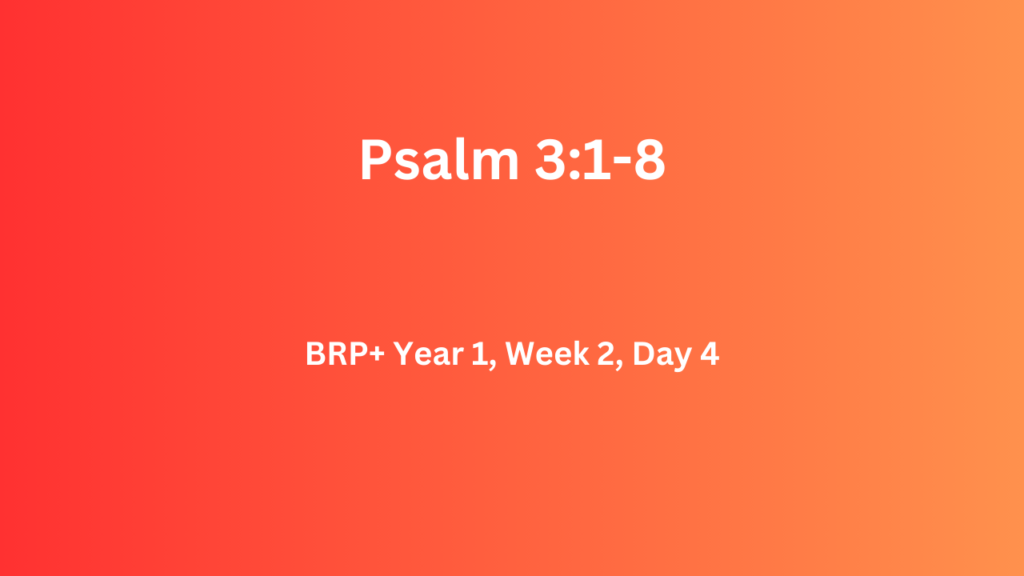Psalm 3:1-8
Q.1. When did David write this Psalm? How did his associates see his circumstances? Where was David’s focus amid his trouble? – (Ps.3:1-3)
According to the title, David composed this Psalm when he fled from his own son Absalom, in the later years of his reign (see 2 Sam.15:1-18). The opening verses set the scene. His adversaries had multiplied against him, and even his own supporters had lost confidence in him, saying – There is no deliverance for him even from God (Ps.3:1-2). David’s strength for battle may have been declining, but his spiritual vitality had not waned, and he declared – But You, O Lord, are a shield about me, my glory, and the One who lifts my head (Ps.3:3).
Q.2. How did David cope with and face his trials? What did his dependence on God do for him? What was it about David that gave him such confidence? – (Ps.3:4-8)
In one of the most difficult trials David could face from a family member, he turned his heart to God – I was crying to the Lord with my voice, and He answered me from His holy mountain (Ps.3:4). He was confident that as he poured out his heart, God heard, and would answer his cries. As a result, he could lie down and be refreshed by sleep … and then rise and provide effective leadership (see Ps.3:5). In the final verses, David declared that the battle was already won, because – Salvation belongs to the Lord; Your blessing be upon Your people! (Ps.3:8). The messages in verses 2, 4, & 8 concluded with SELAH, which was a meditational pause probably with a musical interlude. David composed and sang this Psalm to his fellow exiles from Jerusalem. It doubtless provided them with much inspiration and helped them to focus on God. This is the best way to face our trials.

